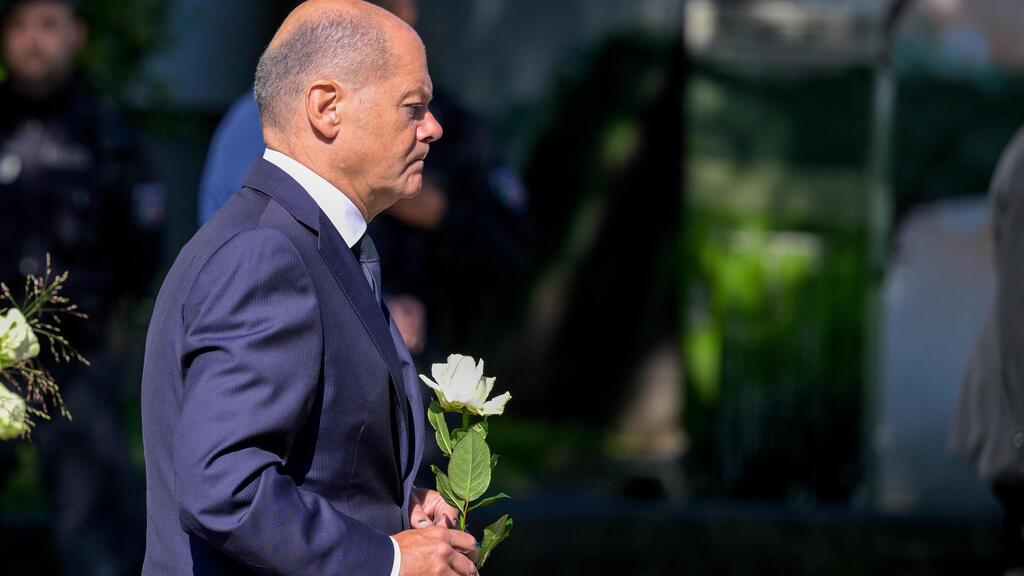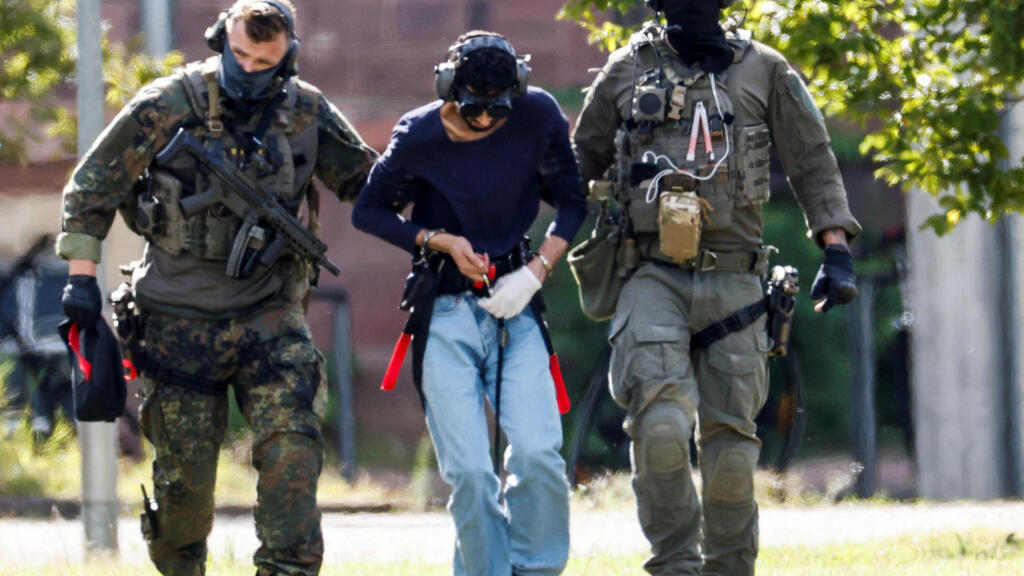Getting your Trinity Audio player ready...
German Chancellor Olaf Scholz vowed to step up deportations on Monday during a visit to Solingen after a deadly mass stabbing by a Syrian asylum seeker, linked to the Islamic State.
"We will have to do everything we can to ensure that those who cannot and are not allowed to stay in Germany are repatriated and deported," Scholz told reporters in the western city, where he laid a flower at the scene of the crime. "This was terrorism, terrorism against us all," he added.
2 View gallery


German Chancellor Olaf Scholz at the site of Friday's mass stabbing
(Photo: Sascha Schuermann / Getty Images)
The 26-year-old suspected Islamic State member is accused of killing three people with stabs to their necks. The attack has fueled political tensions over asylum and deportation rules ahead of three state elections next month.
Islamic State claimed responsibility for the attack, which was carried out on Friday evening during a festival celebrating Solingen's 650-year history. Eight people were also injured, some seriously.
The suspected terrorist was not on the German security agencies' radar. He turned himself in to police custody late on Sunday, wearing clothes still stained with the blood of his victims, according to reports in Der Speigel. The investigation has been placed under the German federal prosecution.
The far-right Alternative for Germany (AfD) party, which campaigns for a crackdown on migration, is leading in the polls in Saxony and Thuringia, where state elections are set for Sunday, and in Brandenburg, which has its election on September 22.
The AfD seized on the attack in its election campaign, with Thuringia's leading candidate for the party, Bjoern Hoecke, pitching to voters the choice of "Hoecke or Solingen."
Botched deportation
The attack piles pressure on Scholz at a time when his Social Democrats - alongside their Green and Free Democrat coalition partners, bruised from months of quarrelling, are trailing in the polls.
In a sign of tougher rhetoric from the center-left chancellor, he promised in October 2023 to ramp up deportations "big style" in an interview with news weekly Spiegel - a promise he repeated after his visit to the Solingen attack scene. Scholz said deportations had increased by some two thirds compared to 2021 levels.
2 View gallery


Suspected IS terrorist in custody after killing three in a mass stabbing in Germany
(Photo: Heiko Becker / Reuters)
"But that is no reason for us to sit back and relax," he added, saying the government was looking at legal and practical ways to boost the numbers.
Authorities had planned to deport the suspect in Friday's attack to Bulgaria last year under European Union asylum rules, according to German media. The deportation was unsuccessful because the man had not been at his refugee accommodation when authorities tried to carry out the measure, the reports said.
A government spokesperson said the deportation plan had "failed in practice" rather than on any legal basis.

